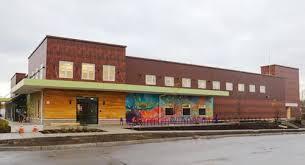Securing Real Estate for Your Co-op:

Real estate is often a co-op’s largest and least changeable asset. Choices about location, buildings, and how both are secured have lasting ramifications that make it crucial to give them proper attention the first time.
In an increasingly competitive market, a well-chosen location and attractive facility are critical to retaining existing shoppers as well as bringing in new faces. Yet navigating the retail real estate market can be complex. In addition to decisions related to the location and facility itself, there are legal and financial considerations that may have lasting impacts. And, because most co-ops secure real estate so infrequently, internal resources to manage the selection and execution of facility investments are often limited. So, where to start?
Working with experienced real estate professionals is imperative. But that’s just part of the equation. Knowing what to expect, what to ask for, and where the pitfalls lie will help make the most of the services of a real estate professional. That’s why NCG’s Development Co+operative (DC) partnered with CDS Consulting Co-op (CDSCC) and Food Co-op Initiative (FCI) to create the Real Estate Resource Guide. This guide provides an overview of the core concepts that co-ops should understand as they embark on new store or relocation projects.
The Real Estate Resource Guide identifies the key issues involved in decision-marking, lays out a process to align key stakeholders on project goals and site criteria, and discusses how to develop a strategy and plan to secure a site. It also identifies the key external resources co-ops will need to engage with along the way.
In reading the Guide, co-ops will better understand some of the tradeoffs between owning and leasing a store, how to evaluate sites, and some of the differences that exist between established co-ops and startups. It also addresses business issues that should be examined early in the process with a potential landlord or seller.
While not a replacement for the assistance of a qualified real estate professional, the Real Estate Resource Guide provides the background needed to work efficiently with partners such as consultants, brokers, and real estate attorneys, as well as the tools for co-ops to lay the groundwork for a successful real estate transaction.
Building a new store can put a lot of stress on an organization, and it should be carried out from a position of organizational and financial strength as well as from the right knowledge base. The Real Estate Resource Guide is a great place to start. Each of its collaborators—NCG’s Development Co+operative, CDS Consulting Co-op, and Food Co-op Initiative—also offers consulting services that are built on a thorough knowledge of the demands of food co-ops, and each of them can help with the planning process.
For more information and support, contact John Guerra, NCG Development Co+operative, at realestate@ncg.coop; Don Moffitt, CDSCC, at DonMoffitt@cdsconsulting.coop; or Stuart Reid, Food Co-op Initiative, at info@fci.coop. A copy of the Real Estate Resource Guide is available from all three organizations, including the FCI website at fci.coop/new-real-estate-resource-guide.
Securing a new site is a long, complicated process that can take months or even years, so it’s rarely too early to start. Understanding the concepts in the guide—and putting in the time and effort to follow the process it outlines—will help co-ops make the most of a major opportunity. •
(In a show of solidarity and spirit, ten natural/organic industry companies and NCG at its 2018 Convergence event generated a contribution of $150,000 toward Puerto Rico and reconstruction of its cooperative businesses; the funds were delivered via the Cooperative Development Foundation. See the story at the ncg.coop/newsroom. —Ed.)







